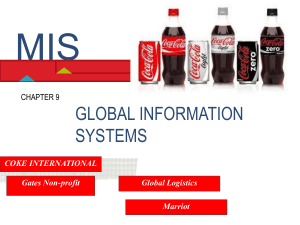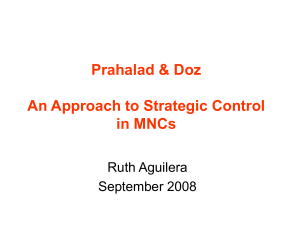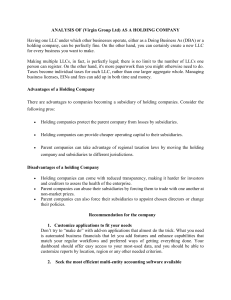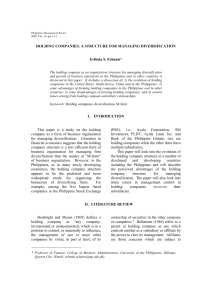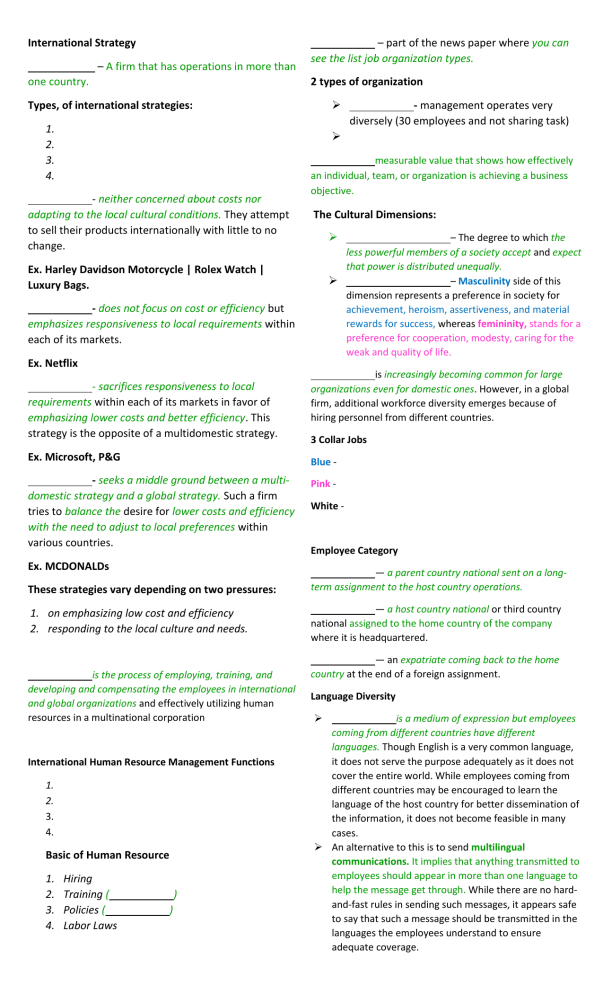
International Strategy – A firm that has operations in more than one country. – part of the news paper where you can see the list job organization types. 2 types of organization Types, of international strategies: 1. 2. 3. 4. - neither concerned about costs nor adapting to the local cultural conditions. They attempt to sell their products internationally with little to no change. measurable value that shows how effectively an individual, team, or organization is achieving a business objective. The Cultural Dimensions: – The degree to which the less powerful members of a society accept and expect that power is distributed unequally. – Masculinity side of this dimension represents a preference in society for achievement, heroism, assertiveness, and material rewards for success, whereas femininity, stands for a preference for cooperation, modesty, caring for the weak and quality of life. Ex. Harley Davidson Motorcycle | Rolex Watch | Luxury Bags. - does not focus on cost or efficiency but emphasizes responsiveness to local requirements within each of its markets. Ex. Netflix - sacrifices responsiveness to local requirements within each of its markets in favor of emphasizing lower costs and better efficiency. This strategy is the opposite of a multidomestic strategy. is increasingly becoming common for large organizations even for domestic ones. However, in a global firm, additional workforce diversity emerges because of hiring personnel from different countries. 3 Collar Jobs Ex. Microsoft, P&G Blue - - seeks a middle ground between a multidomestic strategy and a global strategy. Such a firm tries to balance the desire for lower costs and efficiency with the need to adjust to local preferences within various countries. Pink - Ex. MCDONALDs These strategies vary depending on two pressures: 1. on emphasizing low cost and efficiency 2. responding to the local culture and needs. is the process of employing, training, and developing and compensating the employees in international and global organizations and effectively utilizing human resources in a multinational corporation International Human Resource Management Functions 1. 2. 3. 4. Basic of Human Resource 1. 2. 3. 4. - management operates very diversely (30 employees and not sharing task) Hiring Training ( Policies ( Labor Laws ) ) White - Employee Category — a parent country national sent on a longterm assignment to the host country operations. — a host country national or third country national assigned to the home country of the company where it is headquartered. — an expatriate coming back to the home country at the end of a foreign assignment. Language Diversity is a medium of expression but employees coming from different countries have different languages. Though English is a very common language, it does not serve the purpose adequately as it does not cover the entire world. While employees coming from different countries may be encouraged to learn the language of the host country for better dissemination of the information, it does not become feasible in many cases. An alternative to this is to send multilingual communications. It implies that anything transmitted to employees should appear in more than one language to help the message get through. While there are no hardand-fast rules in sending such messages, it appears safe to say that such a message should be transmitted in the languages the employees understand to ensure adequate coverage. International Human Resource Management – Activities Reviewing Employment Policies Recruitment Selection Process Performance Assessment Training and Development Employee Compensation Check their relevancy and applicability to international operations. For instance, Equal Employment Opportunity Policies relevant to the United States may not be applicable to the subsidiaries in overseas operations. Some countries allow only certain percentage of expatriates to be appointed in their subsidiaries. Recruitment and selection policies must be established taking local regulations and rules. Human resource plans must be drawn for the local operations annually and such information must be passed on to the headquarters for compilation of a cumulative plan for the whole corporation. Checks and verifications must be made for the accuracy and relevancy for scheduled production and service operations of the subsidiary. The steps involved in the selection process must be examined to see their relevancy and applicability to the subsidiaries. For instance, the content and the information secured through application forms must be relevant and applicable to the local situation. Care must be exercised in importing such forms from parent company and using them in the subsidiary without incorporating the local content. is an essential part of the Human resource Management in many of the international companies. They may range from simple to complex assessment systems, such as Competency based systems. The employee’s performance is evaluated periodically with a formalized assessment system. Through Training and Development, international companies have contributed a great deal of education to the employees of their subsidiaries. In many organizations, a separate department is set up to look after this responsibility. Training improves the ability and knowledge of operative employees and development, improves the ability and knowledge of managerial personnel. Compensation is a complex subject when it comes to international area of management. Conditions, systems, and legal aspects vary from country to country. If two or more countries are involved in determining salaries and benefits to their employees in world-wide locations, the complexity is further increased. – UNDERSTAND CUSTOMER BEHAVIOR IN A DIFFERENT WORLD - The people you are marketing to and the product that you are marketing go hand in hand. However, we’re leading off with the people because if you don’t first and foremost understand who you are marketing to, you may end up trying to sell them a product they don’t want and probably will never buy. – ALTERING TO FIT THE NEEDS OF YOUR NEW MARKET - If you notice that the current offering of your product now won’t play in the new market, you want to enter then you can do one of two things: A.) Decide not to sell in that market B.) Change your offering to meet the local demand The classic example of this is McDonald’s. – CHOOSE THE PREMIUM OR ECONOMY PRICING STRATEGY - - For the most part, if you already have a product or service that is successful in one area of the world, the price point you use won’t very much in comparison to the competition in that area. If you have a premium product, it’s likely premium elsewhere. If you have a more affordable, economically friendly product, it’ll be the same in your new market. – CHOOSING STRATEGIES THAT WORK IN THIS NEW ENVIRONMENT - - Figuring out the most effective methods for marketing your product or service abroad is not that much different than doing it domestically. Even if you live where you’re promoting your product, you still have to do some additional research to find out where your target audience is and which mediums they frequent. SAMPLE QUESTIONS TO BE ASKED WHEN DOING PRICING MARKETING STRATEGY •Are certain markets susceptible to buy-oneget-one messages in retail stores? • Is the country I’m planning on operating in using email? • Does my new target market like coupons? • Should I be advertising on television in this part of the world • is Youtube be more appropriate? – FINDING THE SALES AVENUE THAT YOUR CONSUMERS USE - - Defining where you’ll be advertising and marketing your product or service is one thing. But finding the right place to actually sell your offering is another. One of the bigger questions you should look to answer is whether or not you’ll be able to sell your product online. – FINDING THE RIGHT LOOK - The way you package your product or service may vary a lot from country to country. When you determine how to package your offering, color is an important choice. One reason for this is because different areas of the world associate specific meanings to certain colors. For example, in Eastern and Asian cultures, red is a color that is synonymous with happiness, joy, and celebration. But in the Middle East, red is considered a warning and brings forth feelings of danger. Some also consider it to be the color of evil. - Determining Which Messages Will Resonate With The Market Positioning is absolutely critical when entering a new market. - A significant part of your positioning will be evident in the messages you relay in marketing campaigns. The messaging should be derived from your unique value proposition (UVP), which should be made up of the following: 1. — how your product solves customers’ problems or improve their lives 2. — what are the specific benefits 3. — why your ideal customers should choose your product over the competition. - Getting the Ambiance and Mood Right The physical evidence can be broken into three separate areas. - - - The physical environment is the physical space that surrounds the consumer during the service or experience. So, if you’re selling food, then the restaurant is the physical environment. You can look at the ambiance as a subsidiary of the physical environment, it is about the mood and feeling inside the physical space. Colors, music, and lighting are little details that can make a big difference when it comes to how your service is perceived by your consumers. To further illustrate the significance of the actual layout of the space where your service is offered, let’s consider a karaoke bar. In the U.S, karaoke bars typically set up the karaoke machine in an open space, where anyone can see the person performing. - Don’t Overlook Them - Not only do you have to make sure local teams are incorporated into your global marketing strategy, but you should also use them as a helpful resource. - Making a Positive Influence on Your New Community - At the basis of all of these principles, there is a common theme of understanding your consumers. You should constantly be asking what are their needs, wants, pain points, and desires. - Answering all of these questions and incorporating them into your global marketing strategy will help you find success with sales
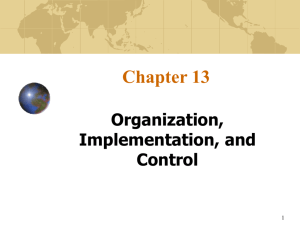

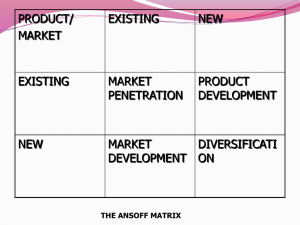
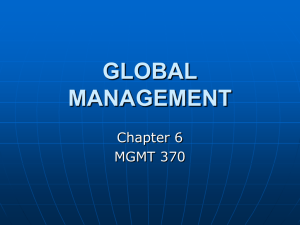
![[DOCX 51.43KB]](http://s3.studylib.net/store/data/007172908_1-9fbe7e9e1240b01879b0c095d6b49d99-300x300.png)

